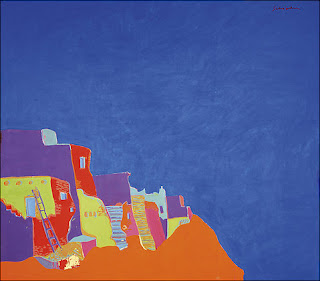 I was contemplating the other day, as I was trying to come up with something to write about, that my creative process is jump-started by and oftentimes flows handsomely from slapdash yet specific, fixed ideas.
I was contemplating the other day, as I was trying to come up with something to write about, that my creative process is jump-started by and oftentimes flows handsomely from slapdash yet specific, fixed ideas.Case in point: I was stuck on my screenplay, not knowing how to move the plot forward when, out of the blue — and during a very unrelated yet heated discussion on Gchat — a friend of mine jokingly hurled a very unusual pseudo-insult at me: He called me an “asshat.” An asshat! Perfect! So snappy! So zany! So PG-13!
The result… My story came alive again. All I needed to do was write “asshat” into the dialogue. The scene practically wrote itself, and now I’m back on track again. The solution, while seemingly nonsensical, was in actuality very elegant and simple (props, Rubenator!).
And this is basically how I beat writer’s block — I force absurd, arbitrary rules on my writing, and then I follow through. Write a sentence with exactly 17 words. Use the rule of three. Pull a quote from a friend’s lame Facebook status update. Use a prepositional phrase separated by an em dash. Use a cliché. Whatever. Not to sound too Nike, but, you know, just do it. I'm also all about this because it’s so pop-postmodern. But I digress.
The road of random leads to the palace of wisdom. Yes? It works for me. It works swimmingly actually, more often than not. Thoughts? What are other good methods to beat the writing heat?











